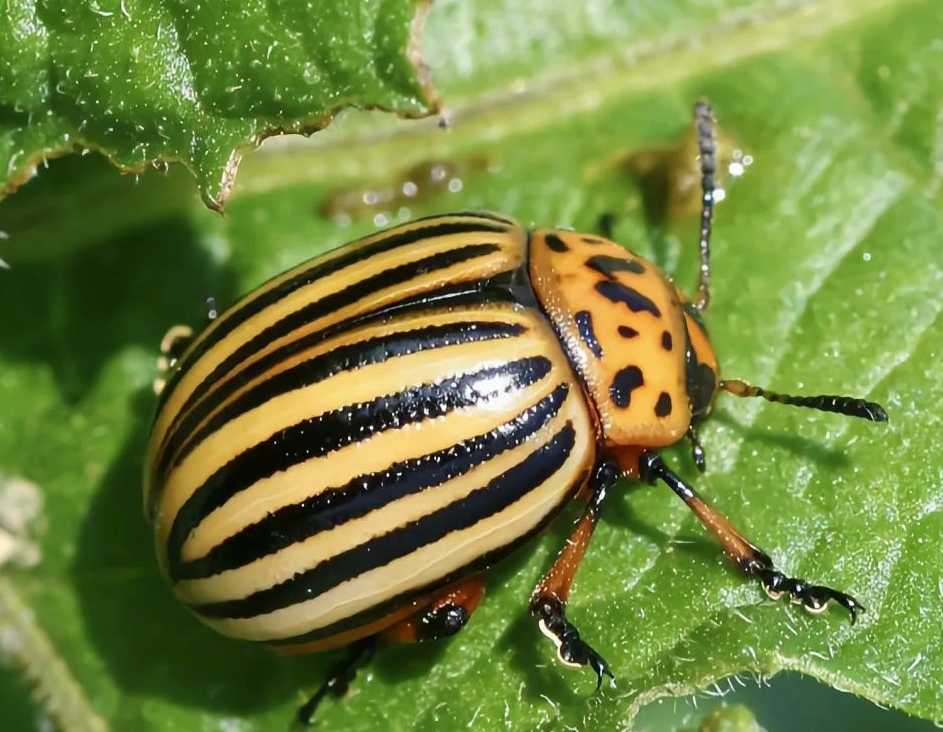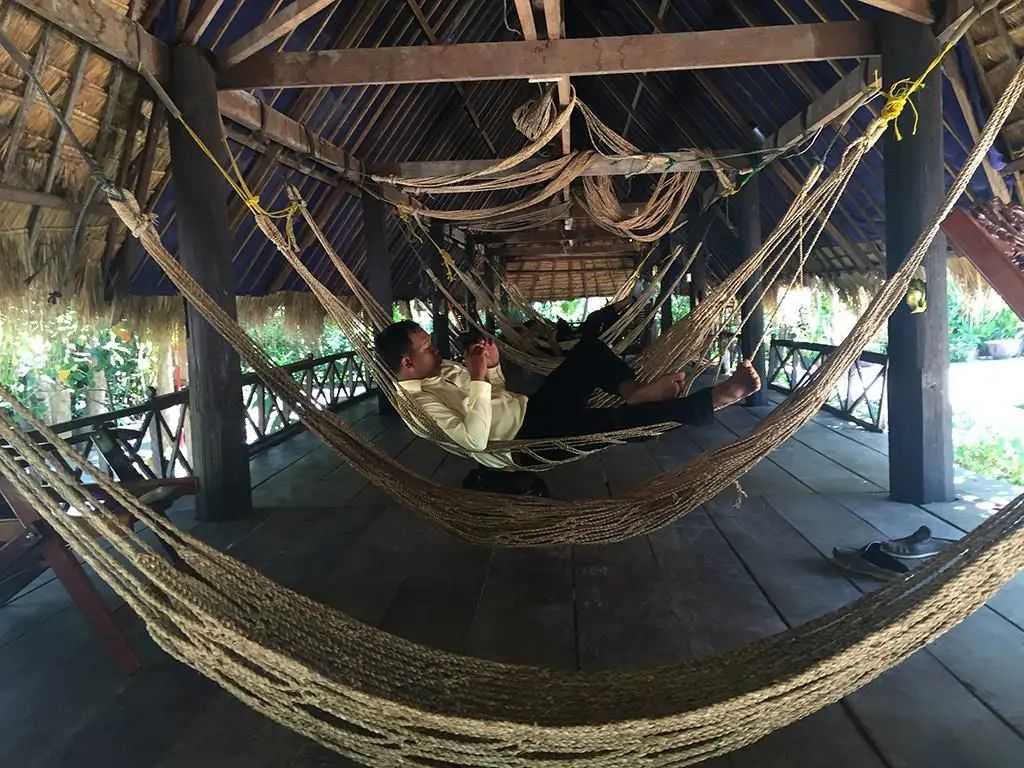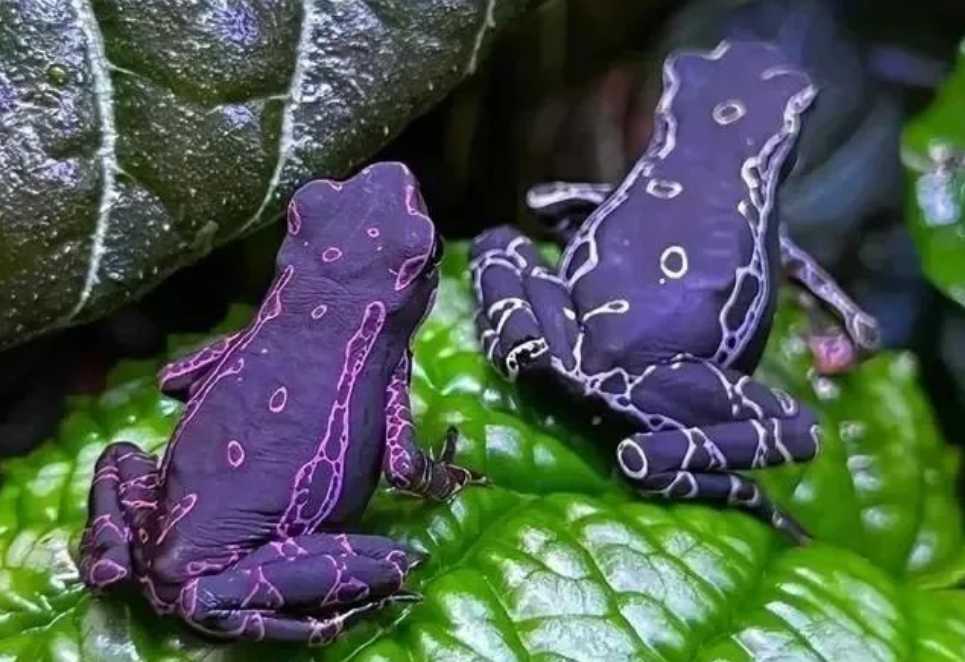
The Colorado potato beetle, scientifically known as Leptinotarsa decemlineata, is a notorious insect pest recognized by its distinctive yellow-orange elytra striped with ten black longitudinal lines. Native to North America, this beetle has earned global infamy for its voracious appetite for potato leaves and its remarkable ability to develop resistance to pesticides, making it a top quarantine target worldwide.
- Physical Characteristics: Adults measure 7–12 mm, with oval bodies marked by the iconic black-and-yellow stripes. Larvae are plump, bright orange-red, and covered in dark tubercles, while pupae transform in soil before emerging as adults. This vivid coloration serves as a warning to predators, as both larvae and adults secrete toxic compounds from their legs.
- Rapid Reproduction: Females lay up to 500 eggs on the undersides of potato leaves, and a single generation can develop in as little as 30 days. This short life cycle allows populations to explode, especially in warm, agricultural regions.
- Specialized Feeding Habits: True to its name, the beetle specializes in feeding on solanaceous plants, particularly potatoes (Solanum tuberosum), but also targets tomatoes, eggplants, and peppers. Larvae and adults strip leaves down to the veins, reducing crop yields by up to 90% if left uncontrolled.
- Pesticide Resistance: Over decades of chemical control, the beetle has evolved resistance to more than 50 insecticides, including organophosphates, pyrethroids, and neonicotinoids. This resistance arises from genetic mutations that enhance detoxification enzymes or alter pesticide targets, making it a model organism for studying insecticide resistance mechanisms.
- Invasive Journey: Originating in the Rocky Mountains, the beetle followed potato cultivation westward in the 19th century and crossed the Atlantic in the early 1900s. Today, it infests potato farms in Europe, Asia, and North Africa, prompting strict international quarantine protocols.
- Management Challenges: Farmers employ integrated pest management (IPM) strategies, including crop rotation, biological control (using natural enemies like parasitic wasps), and genetically modified potatoes producing insecticidal proteins. However, the beetle’s adaptability often outpaces these efforts.
- Model for Pest Research: The beetle’s genome has been sequenced, aiding studies on insect-plant interactions, pesticide resistance, and evolutionary biology. Its ability to rapidly adapt to new hosts and toxins makes it a critical case study in invasive species management.
- Cultural References: In popular culture, the beetle symbolizes agricultural adversity, appearing in literature and documentaries about sustainable farming. Its nickname, the "striped bandit," reflects farmers’ frustration with its destructive habits.
As climate change expands suitable habitats for the beetle, researchers race to develop novel control methods, such as RNA interference (RNAi) targeting specific genes or pheromone-based traps to disrupt mating. However, the beetle’s resilience underscores the need for global cooperation in pest management—proof that even a small, striped insect can pose a massive challenge to global food security.
From its humble origins in North American prairies to its status as a worldwide agricultural foe, the Colorado potato beetle exemplifies the complex relationship between humans, plants, and pests. Its story serves as a warning: in the battle against invasive species, adaptability often determines survival—and this striped adversary shows no signs of surrender.





